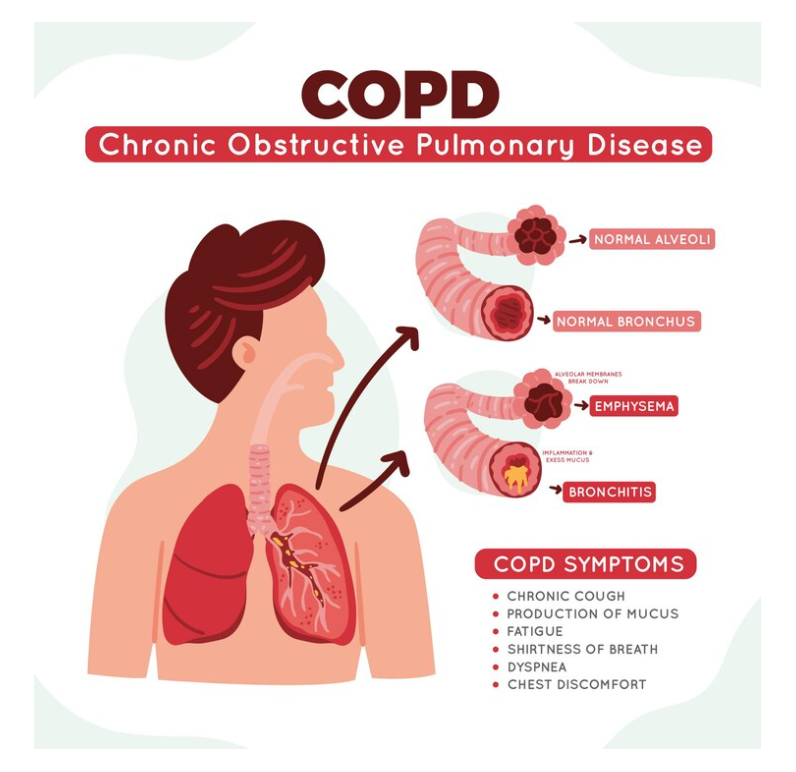
Understanding COPD: Causes, Symptoms, and Diagnosis
Have you ever heard of COPD and wondered what it means? Chronic Obstructive Pulmonary Disease (COPD) is a long-term lung condition that makes breathing difficult. Let’s break down what COPD is and how it affects the body.
What Causes COPD?
Most cases of COPD result from smoking cigarettes or long-term exposure to smoke and harmful substances. This includes secondhand smoke, air pollution, and chemical fumes.
In rare cases, genetic factors or exposure to dust and chemicals at work can also lead to COPD.
Common Symptoms of COPD
COPD can lead to a range of symptoms that vary from person to person. Some common signs include:
- Persistent coughing
- Wheezing or noisy breathing
- Shortness of breath, especially during physical activity
- Chest tightness
- Frequent respiratory infections
- Fatigue or lack of energy
- Bluish lips or fingernails (which indicates low oxygen levels)
If you notice any of these symptoms, especially if you smoke or have a history of exposure to lung irritants, it’s important to visit a doctor for evaluation.
How is COPD Diagnosed?
Doctors diagnose COPD by combining medical history, physical examination, and lung function tests. Your doctor will ask about your symptoms, smoking habits, and exposure to lung irritants.
They will also conduct a breathing test called spirometry to measure how well your lungs function.
In spirometry, you’ll inhale deeply and exhale forcefully into a tube connected to a machine. This test measures how much air you can exhale and how quickly, helping the doctor assess the severity of your condition.
If necessary, your doctor may recommend additional tests such as chest X-rays or CT scans to rule out other lung issues or complications.
Wrapping Up
In summary, COPD is a chronic lung condition that makes breathing difficult due to narrowed airways and damaged lung tissue. It’s often caused by smoking or exposure to irritants, and it presents symptoms such as coughing, wheezing, and shortness of breath.
If you experience any of these symptoms, particularly if you smoke or have been exposed to lung irritants, don’t delay in seeing a doctor. Early diagnosis and treatment can help manage COPD symptoms and improve your quality of life.
Remember, your lungs are vital, so make sure to care for them!
To seek medical advice, always consult a Doctor. Here are our recommended experts. Click here
To read more on Respiratory disease . Click Here



